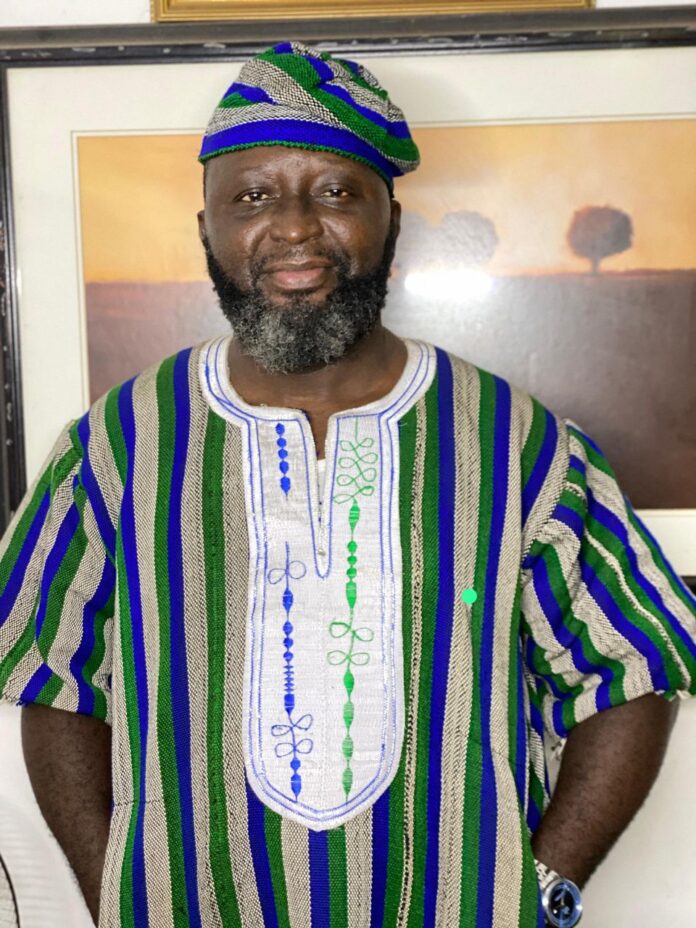By: The Silent Thinker
The Executive Director of the Citizens’ Forum for Democratic Accountability (C4D) and Managing Editor of C4D Media Newspaper, Marcus Bangura, sparked a lively and thought-provoking debate among electoral experts, civil society actors, and academics during a high-level dialogue on electoral reform at Country Lodge. His central question resonated deeply across the room:
“Between simplicity (FPTP) and complexity (PR), which one is more preferable for Sierra Leone’s voting system?”
In his opening remarks, Mr. Bangura emphasized the importance of designing an electoral system that is accessible to ordinary citizens:
“I want to start by saying or asking all of us here: ‘Between simplicity (FPTP) and complexity (PR), which one is more preferable?’” he posed. “It is not so much about ourselves, it’s about the people out there who may have little or no knowledge about electoral systems.”
Drawing a direct comparison between the two systems, Mr. Bangura expressed strong support for the First-Past-The-Post (FPTP) or Simple Plurality System, which he described as better suited for Sierra Leone’s current political and civic context.
“Juxtaposing the two with a hair-split analysis, I hold the strongest conviction that First-Past-The-Post (FPTP) or Simple Plurality System is better for the people of this country.”
Touching on the question of representation, often cited as a key advantage of the Proportional Representation (PR) model, Mr. Bangura argued that inclusivity in governance is largely shaped by internal political party practices, rather than the voting system alone:
“We talk about representation, yes… PR System makes for representation as exponents of the PR System would want us to believe. But looking at the other side when it comes to representation, whether it’s a disability issue, whether it’s women’s issue, it’s all grounded with political parties, the system, how they organize, shape, and mould the system.”
He referenced the 2007 parliamentary elections, under the FPTP model, where individuals with disabilities were elected, and questioned whether the same level of inclusion has been maintained under the current PR system:
“In the 2007 elections, we had people with disability in Parliament, and I doubt whether the current Parliament has people with disability under the PR system.”
Mr. Bangura underscored the transparency and simplicity of FPTP, noting that it allows for quick vote counting and does not rely on software or complex calculations. He also raised concerns about trust and clarity under the PR system:
“We want a situation wherein we can have simple, straightforward elections where ballot papers are counted on time, that’s what is good for democracy, where we don’t have to use software. When you talk about the PR System, we all know what happened quite recently after the 2023 elections.”
He further expressed concern about the decline of smaller political parties under the PR model, challenging the notion that it promotes multiparty democracy:
“When we talk about the multiparty system, a multiparty system is a system wherein we allow political parties to contest, and not merely two political parties, but under the PR system, we have seen how smaller political parties or third forces have been eliminated.”
To reinforce his point, he asked the audience to reflect on the current makeup of Parliament:
“Let’s take a look at our Parliament. Do we have a third party there at the moment? No.”
He emphasized that prior to the 2023 elections conducted under the PR system, smaller parties had a visible presence in Parliament, which has since diminished:
“Before the 2023 PR-based elections, we had them in Parliament. So when we talk in terms of representation, we need to take that into consideration.”
In conclusion, Mr. Bangura called for a voting system that supports inclusivity not just in theory, but in practice, particularly by creating an enabling environment for smaller political parties to be represented in Parliament and for all citizens to fully understand and engage with the electoral process.


